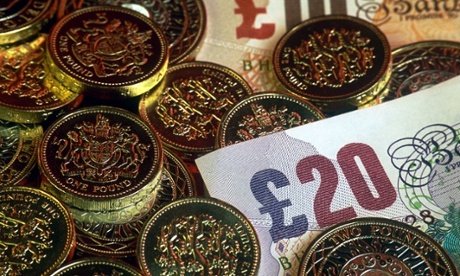
Government borrowing was £14.1bn in November, down £1.6bn compared with the same month last year. It was lower than the City expected, and an improvement in the public finances after months of deterioration. However, the deficit remains stubbornly high. Borrowing in the fiscal year so far - between April and November - was £75.8bn. The Office for Budget Responsibility (OBR), the Treasury’s independent forecaster, expects 2014-15 full-year borrowing to be £91.3bn. Here is what some of the UK’s economists made of the latest figures from the Office for National Statistics.
Martin Beck, EY ITEM Club
After a prolonged period of the deficit stubbornly refusing to fall, November’s fiscal numbers may at first seem to provide evidence that the public finances are finally starting to share in the economy’s resurgence. However, the underlying fiscal position is not quite as positive as the headline numbers suggest.
Overall meeting the OBR’s forecast of a deficit of £91.3bn for 2014-15 still looks like a tough call. Looking further ahead, any delay in deficit reduction would raise questions over the Chancellor’s long-term ambition for a budget surplus and the hefty spending cuts implicit to achieving that.
James Sproule, Institute of Directors
One swallow does not make a summer, and although the figures are moving in the right direction we have to remember that public sector borrowing for the financial year so far is only very slightly down on last year.
The budget is being balanced slowly, but this is being done on the back of a heavy tax burden. The government will only be able to decrease this burden if fiscal consolidation continues.
Victoria Clarke, Investec
Whilst there is still a way to go through 2014-15, the tide of the public finances does appear to be moving in the chancellor’s favour such that he should, at the very least, be on course to deliver a borrowing outturn lower than 2013-14’s full year outturn and meet or outperform the OBR’s current fiscal year forecast.
Just months ahead of the 7 May general election, this would be a major plus for the chancellor as the Conservatives continue to position themselves as the party to trust on the economy whilst they seek to present their main opponents as lacking in fiscal credibility and fiscal plans.
Samuel Tombs, Capital Economics
While the latest public finance figures showed that the trend in borrowing has finally begun to improve, the pace at which the deficit is falling remains disappointingly slow given the strength of the economic recovery.
Borrowing in the remaining four months of this fiscal year will have to be a chunky £5.6bn or 27% lower than it was last year for the new [£91.3bn] forecast to be met. While November’s public finance figures are a step in the right direction, the road to fiscal sustainability looks set to be long and bumpy.
David Kern, British Chambers of Commerce
Although UK public sector finances showed further improvement in November, it remains unlikely that the government will achieve the results predicted [by the OBR] for this financial year. While these latest results are positive, the task of stabilising Britain’s public finances will require a sustained effort and tough decision making from any incoming government.
Despite our strong recovery the UK’s ability to generate tax revenues is now smaller than before the financial crisis. This reflects weak earnings growth, declining oil and gas production and the reduced profitability of our banking and financial sector.
Howard Archer, IHS Global Insight
A small early Christmas present for the Chancellor as the public finances showed modest underlying improvement in November. Even so, George Osborne still faces a tough ask to meet his upwardly revised fiscal target for 2014/15.
Despite November’s modest improvement and healthy economic growth this year, the chancellor has suffered a disappointing fiscal year so far.

